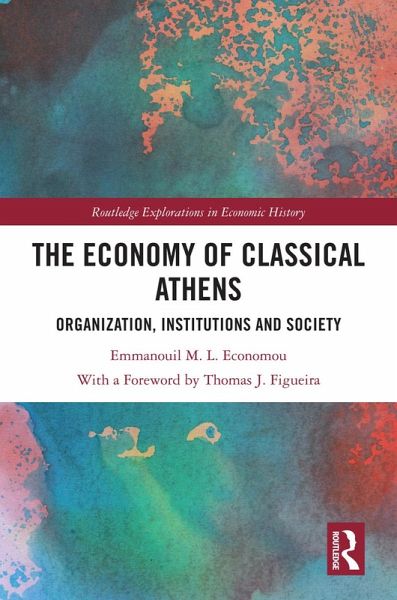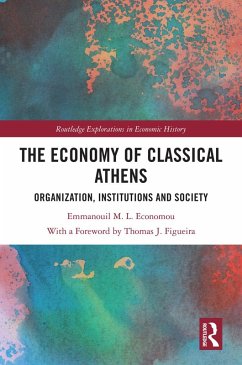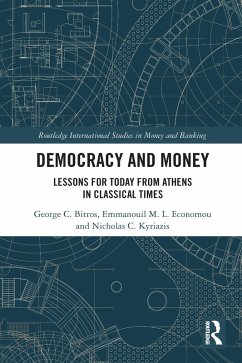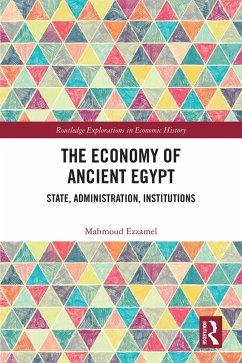
The Economy of Classical Athens (eBook, ePUB)
Organization, Institutions and Society
Versandkostenfrei!
Sofort per Download lieferbar
42,95 €
inkl. MwSt.
Weitere Ausgaben:

PAYBACK Punkte
21 °P sammeln!
In parallel to the development of democracy, the Athenians of the Classical period established a series of sophisticated economic institutions for the time through which they developed a maritime and commercially oriented economy. This book provides a thorough analysis of this transformation and the functioning of the Athenian economy during the Classical period. Through the approach of New Institutional Economics (NIE), the book explores the establishment of key institutions including property rights protection, the legal protection of commercial contracts, prices determined by the forces of ...
In parallel to the development of democracy, the Athenians of the Classical period established a series of sophisticated economic institutions for the time through which they developed a maritime and commercially oriented economy. This book provides a thorough analysis of this transformation and the functioning of the Athenian economy during the Classical period. Through the approach of New Institutional Economics (NIE), the book explores the establishment of key institutions including property rights protection, the legal protection of commercial contracts, prices determined by the forces of supply and demand, institutions against profiteering, banking services, the provision of loans through interest rates, consumer credit, insurance companies and a (primitive) version of joint-stock companies. Furthermore, the book focuses on the structure of the public sector, on how the state budget was determined and on how decisions on public revenues and expenditures were made. It also provides an integrated and detailed analysis of the social welfare policies that were implemented through the provision of a variety of public goods in Classical Athens. Moreover, it focuses on a series of socio-economic aspects such as the social status of women, slaves and foreigners and the viewpoints of prominent Athenian philosophers regarding economic organization. Finally, the book investigates whether an Athenian economic-political model of governance, based on a combination of advanced economic institutions (of free market type logic, even if in a primordial form) and direct democracy principles, can provide any lessons for modern societies. The book will be of great interest to readers of the economy, history and society of Ancient Greece as well as economic historians, ancient historians and policymakers more broadly.
Dieser Download kann aus rechtlichen Gründen nur mit Rechnungsadresse in A, B, BG, CY, CZ, D, DK, EW, E, FIN, F, GR, HR, H, IRL, I, LT, L, LR, M, NL, PL, P, R, S, SLO, SK ausgeliefert werden.













